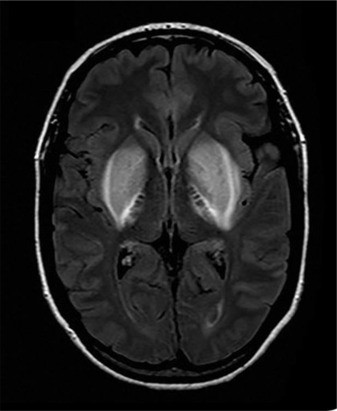Definition
Typhoid encephalopathy is a disease affecting the central nervous system, including the brain, caused by an infection with Salmonella typhi. It is a complication of typhoid fever in patients who do not receive proper therapy. Neurological symptoms typically occur later, from the second to the fourth week after the patient exhibits digestive and other systemic symptoms.
Typhoid fever is endemic in Indonesia and is commonly found in the population. Patients with typhoid encephalopathy usually present with neurological symptoms such as decreased consciousness and seizures between days 7-9, accompanied by increased antibody titers against Salmonella typhi or positive blood cultures for the disease.
Involvement of the central nervous system in typhoid fever indicates the severity of the infection. Neurological symptoms in typhoid fever are relatively rare, particularly today, as antibiotic therapy has proven effective in preventing such complications. Analysis of cerebrospinal fluid revealing Salmonella typhi is found in only about 2% of positive blood cultures in patients with decreased consciousness. Typhoid encephalopathy accounts for approximately 7.3% of complications in typhoid fever patients.
Causes
The bacterium Salmonella typhi causes typhoid fever, transmitted via the fecal-oral route, meaning it is ingested through contaminated food or water. Salmonella typhi can be spread through food and drink contaminated by the feces and urine of infected individuals. Once ingested, the bacteria infect the intestines, leading to digestive symptoms as the primary manifestations.
The incubation period from bacterial exposure to symptom onset is around 4-14 days. In the initial weeks, patients may experience high fever, a coated tongue, weakness, headache, abdominal pain, diarrhea or constipation, and joint pain. Without proper treatment, the bacteria can spread to the blood and other organs, causing various complications.
The exact mechanism by which Salmonella typhi infects the brain is not well understood, but most scientists agree that the infection spreads through the bloodstream. Another hypothesized mechanism involves the release of bacterial toxins that affect the brain, although this has not been conclusively proven. Additionally, impaired immunity (immune system disturbance) is believed to mediate typhoid encephalopathy.
Risk factor
Risk factors for typhoid encephalopathy include untreated or inadequately treated typhoid fever. This condition is worsened in vulnerable groups, such as patients with weakened immune systems (e.g., HIV/AIDS), children, adolescents, and the elderly. These groups are at higher risk of developing typhoid encephalopathy when typhoid fever is not properly managed.
Typhoid fever affects approximately 27 million people annually, most commonly in developing countries with poor sanitation. Globally, children are the most at-risk group.
Risk factors for typhoid fever include:
- Living in or traveling to areas where typhoid fever is endemic
- Working as a clinical microbiologist frequently exposed to Salmonella typhi
- Having close contact with someone infected with typhoid fever
- Consuming food and water contaminated by Salmonella typhi
Symptoms
Typhoid encephalopathy can manifest with various brain function disturbances, including changes in mental status. Symptoms range from drowsiness, apathy, confusion, incoherent speech, and agitation, to coma (no response to any stimuli).
Typhoid encephalopathy requires intensive care in an ICU. Its symptoms can resemble psychiatric disorders, complicating diagnosis, with psychotic symptoms such as hallucinations, delusions, and behavioral disturbances. Memory impairment is also common and may persist after the acute phase.
In rare cases, typhoid encephalopathy symptoms may mimic a stroke. Seizures can occur due to disrupted brain function.
Diagnosis
Diagnosis of typhoid encephalopathy is based on clinical symptoms in patients with laboratory-confirmed Salmonella typhi infection or antibodies against the bacteria. Tests include the Widal or Tubex test, using blood samples.
Antibody levels in Widal and Tubex tests are higher in typhoid encephalopathy patients compared to those with typhoid fever without central nervous system involvement. Blood tests also show signs of bacterial infection, such as increased white blood cells (leukocytosis).
Blood culture remains the gold standard for typhoid fever diagnosis. Other tests for typhoid encephalopathy include cerebrospinal fluid analysis (spinal tap) and brain imaging (CT scan) to rule out other causes of neurological symptoms like tumors or brain abscesses caused by other microorganisms.
Seizures can be further investigated using electroencephalography (EEG) to observe brain electrical activity and identify affected brain areas.
Management
Typhoid fever, with or without encephalopathy, can be treated with antibiotics to eliminate Salmonella typhi. Other medications are administered based on the patient's symptoms, such as antipyretics for fever.
Complications
Typhoid encephalopathy can be life-threatening if untreated, as it represents the end-stage of typhoid fever. This condition often occurs alongside sepsis (multi-organ failure due to severe infection), leading to death.
Timely treatment increases recovery chances, but permanent brain damage may result in lasting behavioral and memory disturbances. Some patients may experience neurological deficits similar to stroke survivors.
Prevention
Preventing typhoid fever involves avoiding contaminated food and water. Good hygiene practices, such as washing hands before eating and after using the toilet, and consuming properly cooked food, are crucial.
Adequate sanitation and medical care help prevent and control typhoid fever. In developing countries with poor sanitation, vaccination is recommended to control typhoid fever. The Indonesian Pediatric Association (IDAI) recommends typhoid vaccination for children starting at age 2, with booster shots every 3 years.
When to see a doctor?
Seek immediate medical attention for typhoid encephalopathy symptoms like seizures or changes in mental status. Proper treatment of typhoid fever with antibiotics reduces the risk of complications such as encephalopathy. Consult a doctor if fever persists beyond 5 days despite treatment.
Looking for more information about other diseases? Click here!
- dr Ayu Munawaroh, MKK
Typhoid Fever and Its Nervous System Involvement. (2022). Retrieved 25 September 2022, from https://www.intechopen.com/chapters/76635
Typhoid encephalopathy as a neuropsychiatric manifestation of salmonellosis. (2022). Retrieved 25 September 2022, from http://www.revistagastroenterologiamexico.org/en-typhoid-encephalopathy-as-neuropsychiatric-manifestation-articulo-S2255534X21001213
Typhoid fever presenting with central and peripheral nervous system involvement. (2022). Retrieved 25 September 2022, from https://www.elsevier.es/es-revista-neurologia-295-pdf-S0213485322000275
Mengenal Demam Tifoid. (2016). Retrieved 25 September 2022, https://www.idai.or.id/artikel/klinik/keluhan-anak/mengenal-demam-tifoid












